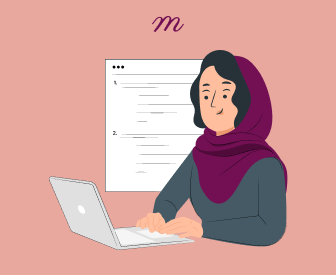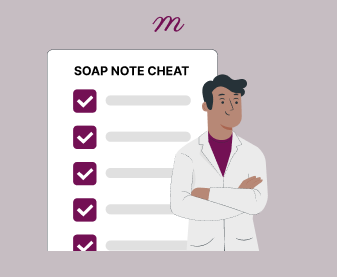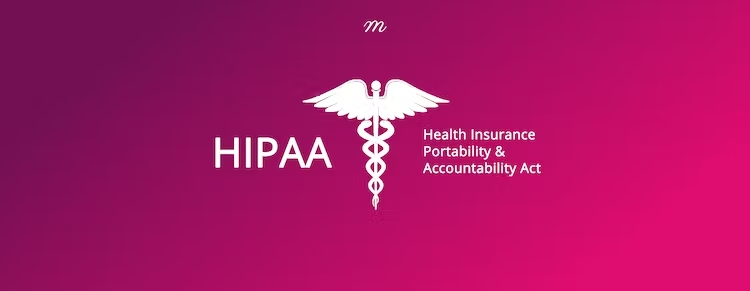Have your progress notes written for you automatically
Clinical documents are essential for psychotherapists to maintain organized and confidential records of their clients' treatment and progress. Clear, accurate, and comprehensive documentation supports mental health professionals in providing better care, tracking progress and change, and ensuring compliance with ethical and legal standards.
The Vital Role of Clinical Documents in Psychotherapy
Clinical documents are truly the backbone of any psychotherapy practice, serving as a fundamental and indispensable tool that supports both therapists and clients. These essential documents are indispensable for maintaining organized and confidential records of treatment and progress.
Clinical documentation is not merely an administrative requirement – they are a cornerstone of effective therapy, serving multiple purposes. Why are clinical documents so crucial in the field of psychotherapy? Here are the reasons:
Organized Record-Keeping.
Clinical documents serve as a thorough and organized record of a client's mental health treatment journey. Records include information such as demographics, assessment data, treatment plans, session progress notes, homework assignments, tracking forms, and progress reports. Organized record-keeping helps mental health professionals track the client’s history, goals, and interventions, ensuring a comprehensive understanding of the client's unique needs and progress over time.
Confidentiality and Ethical Standards.
Maintaining confidentiality is a fundamental ethical obligation for mental health professionals. Clinical documents are safeguarded to protect sensitive information. Adhering to strict confidentiality protocols upholds ethical standards and fosters trust and transparency between therapists and clients, creating a safe therapeutic environment.
Enhanced Treatment Quality.
Clinical documents serve as valuable tools for mental health professionals to evaluate the effectiveness of their interventions and adjust treatment plans accordingly. By reviewing session notes and progress reports, therapists can identify trends, patterns, and areas of improvement. Clinicians can then tailor their therapeutic approaches, ensuring that treatment remains effective and client-centered.
Legal and Ethical Compliance.
Compliance with legal and ethical standards is of paramount importance, and documents serve to ensure mental health professionals adhere to these standards. Clinicians can meet legal requirements such as informed consent, documentation of assessments, and mandated reporting of harm to self or others. Appropriate documentation also provides a safeguard in case of legal or ethical challenges that may arise during treatment.
Communication and Collaboration.
Clinical documents facilitate communication and collaboration among mental health professionals involved in a client's care. With proper client consent, mental health professionals can share relevant information with other clinicians, ensuring a holistic treatment approach. Interdisciplinary collaboration can be critical in cases where clients have complex mental health needs or comorbid conditions.
Accountability and Professional Development.
Mental health professionals use clinical documents to maintain accountability for their actions and decisions. During supervision or peer consultation, documents are reviewed to ensure adherence to ethical guidelines and best practices. Clinical documentation serves as a valuable resource for ongoing professional development, enabling clinicians to reflect on their practice and seek improvements.
Continuity of Care.
When clients transition between therapists or require intermittent treatment, clinical documentation ensures continuity of care. New therapists can review these documents to gain insights into the client's history, goals, and progress, allowing for a seamless transition and consistent treatment planning.
It’s clear that clinical documents are not just paperwork – they are an essential part of the psychotherapy process. In summary, thorough documentation helps mental health professionals:
provide high-quality care.
organize their records and case files.
protect clients' confidentiality and privacy.
comply with ethical and legal standards.
communicate and collaborate with clinical team members.
maintain accountability.
Clinical documents are a record of progress and a tool for mental health professionals to refine their practice and ensure their clients receive the best possible care in a safe and ethical therapeutic environment.
Common Examples of Clinical Documents Used by Psychotherapists
Typically the first document that’s completed when a new client begins therapy. It includes personal information, presenting concerns, medical history, mental health history, and consent for treatment.
This dynamic and frequently revised document outlines therapeutic goals and objectives, the methods and interventions to achieve those goals, and the expected treatment timeline. It may also include a client's input and preferences.
Available in several formats, notes document what happens during each therapy session. Progress notes include the date, session duration, client's presentation (mood, affect, behavior), topics discussed, interventions used, client responses, and any homework assignments or action plans. Progress notes should be concise and focus on clinically relevant information.
Diagnostic Assessments
There are numerous diagnostic assessments mental health professionals may use to determine the client's mental health diagnosis.
Another essential document, this form outlines the therapist's role, client rights, the therapeutic process, confidentiality, payment terms, potential risks or limitations of therapy, and more. You may need several informed consent forms (e.g. if you conduct group therapy or telehealth sessions). Clients must sign this document before starting therapy.
Release of Information (ROI) Form
If the client wants the therapist to share information with another party (such as a medical doctor, family member, or attorney), a release of information form must be signed by the client. This document specifies what information can be shared and with whom.
Crisis or Safety Plan
If the client is at risk of self-harm or harm to others, a safety plan outlining the steps to take in case of a crisis should be created. This form includes emergency contact information, coping strategies, and a plan to access immediate help.
When the therapeutic journey ends, a termination summary documents the client's progress, treatment outcomes, and any recommendations for ongoing care or self-help strategies.
Financial and Billing Forms
These documents include good faith estimates, an explanation of fees, invoices, receipts, and records of insurance claims for reimbursement.
Supervision and Consultation Notes
If the mental health professional receives supervision or consultation from another clinician, notes from these sessions may be kept for quality assurance and compliance with ethical guidelines.
Client Feedback and Evaluation Forms
These forms help mental health professionals collect feedback from clients about their therapy experience, which can be used to improve services and treatment outcomes.
Ethical and Legal Documentation
Forms may include information about ethical dilemmas, legal issues, or complaints. Correspondence with ethics committees or legal authorities may also be included.
Note: Clinicians must maintain confidentiality and adhere to legal and ethical standards when handling clinical documents. Different jurisdictions and licensing bodies have specific requirements for record-keeping, so be aware of and comply with local regulations and ethical guidelines – particularly for digital storage and communication.










